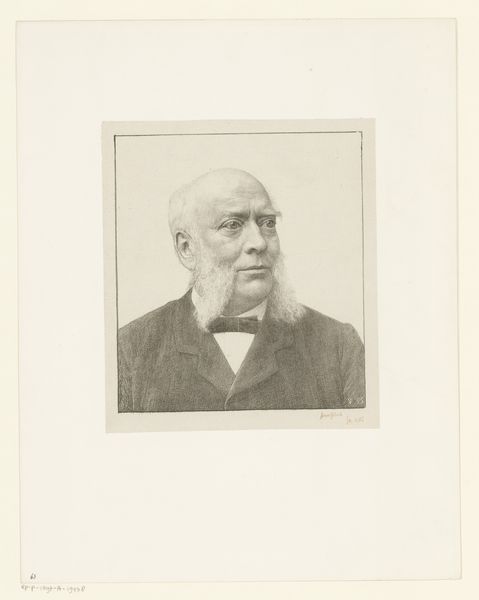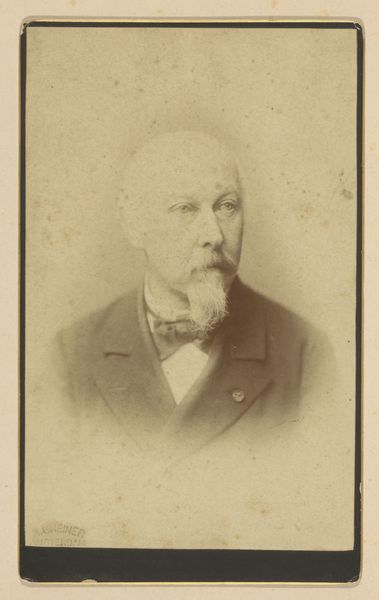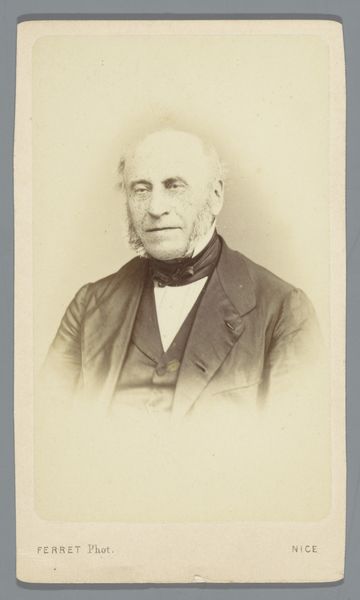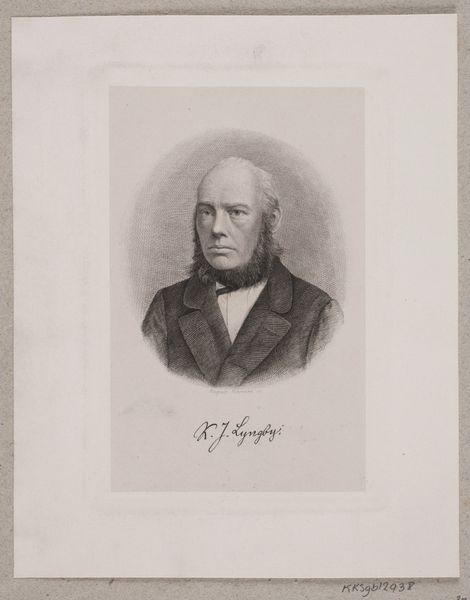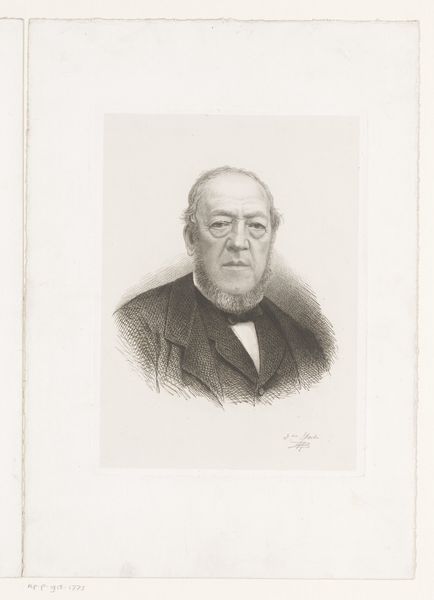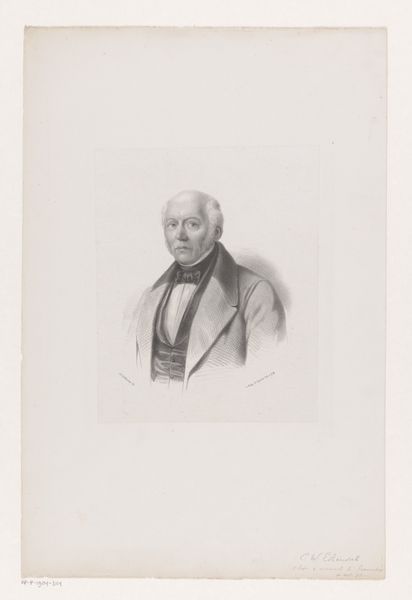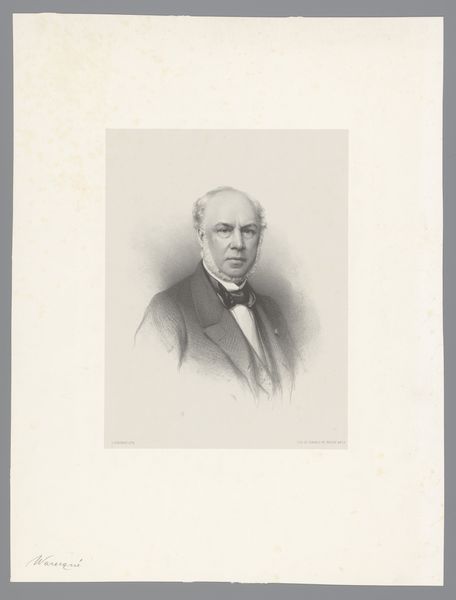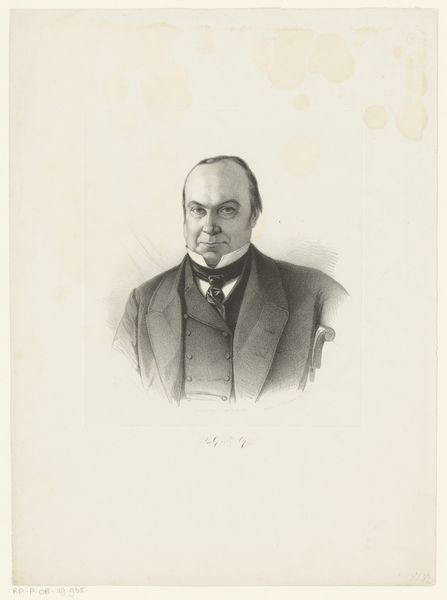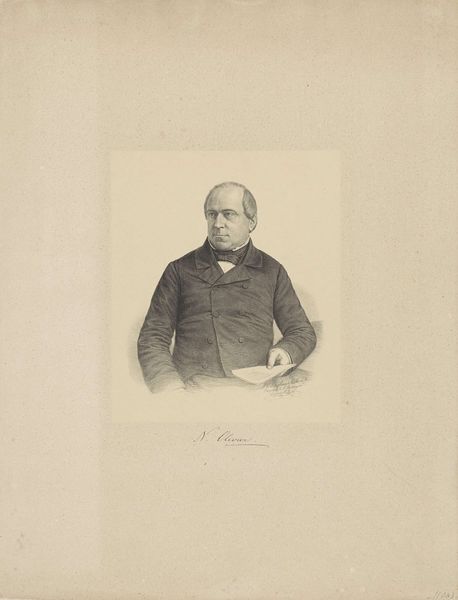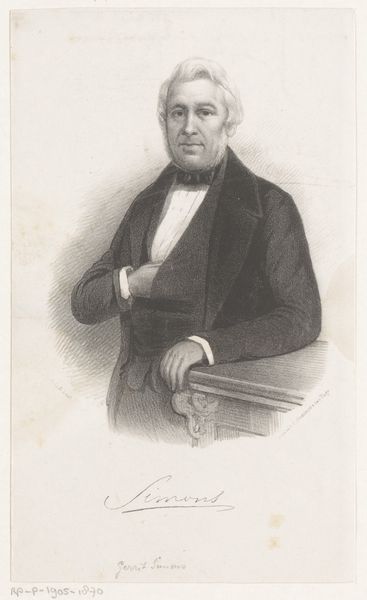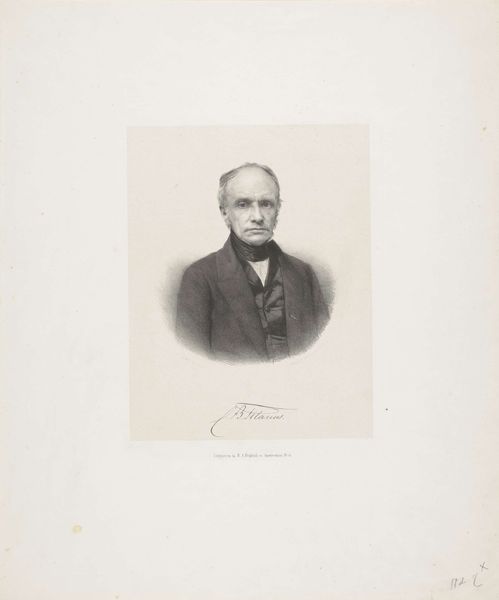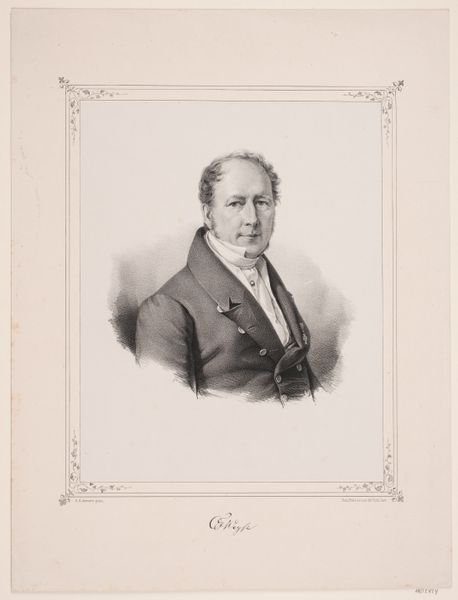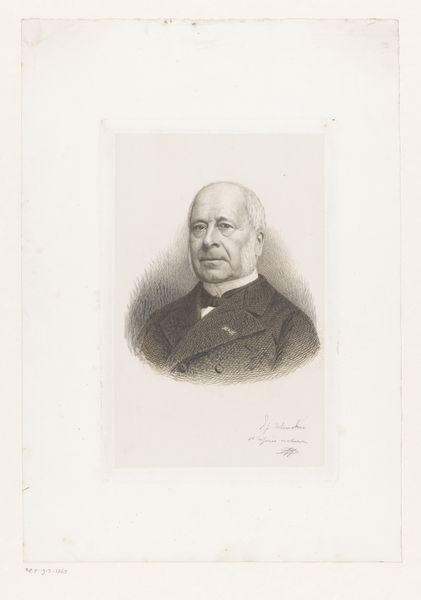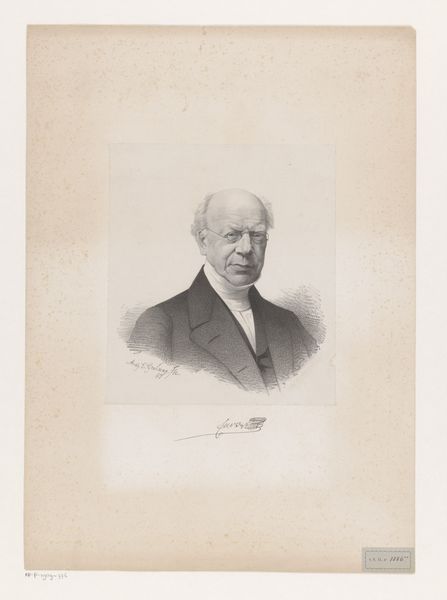
Portret van Everhardus Johannes Potgieter 1842 - 1875
0:00
0:00
nicolaasjohanneswilhelmusderoode
Rijksmuseum
drawing, pencil, graphite
#
portrait
#
pencil drawn
#
drawing
#
pencil drawing
#
pencil
#
graphite
#
portrait drawing
#
academic-art
Dimensions: height 157 mm, width 113 mm
Copyright: Rijks Museum: Open Domain
Editor: So, here we have Nicolaas Johannes Wilhelmus de Roode’s "Portret van Everhardus Johannes Potgieter," a drawing rendered sometime between 1842 and 1875. The artist used graphite and pencil to capture this gentleman’s likeness. There’s something rather serious about the portrait, a sort of reserved dignity. What strikes you about this piece? Curator: It does carry a certain gravity, doesn't it? For me, beyond the subject's imposing demeanor, it's the artist's touch that captivates. Look at the subtle gradations of tone, the way the light catches the brow. There is almost something spiritual about the soft modelling of form. The technique feels academic yet infused with the artist's inner gaze, don't you think? And isn’t it intriguing to consider the act of portraying someone - capturing not just likeness, but essence, in simple pencil strokes? Editor: I do see what you mean. The light really does dance across his face. But the stiffness of the pose seems to contradict that sense of a captured “essence.” Could this tension be intentional? Curator: Perhaps! Intentional or not, that tension becomes part of the portrait's narrative. It invites us to imagine what lies beneath the surface, doesn't it? Like a silent story unfolding. Think about the historical context as well; photography was emerging, making portraiture like this a deliberate artistic choice. What does that say about the value they placed on handcrafted representation? Editor: That's a really interesting point. It makes you wonder about the relationship between the artist and their subject. Curator: Exactly! The dialogue embedded within those lines of graphite. Ultimately, art, even a seemingly simple portrait, is always an invitation to see, to feel, to wonder... and hopefully, to dream a little. Editor: I hadn't thought about it that way, but you’re right. I’m going to spend more time considering those silent dialogues from now on!
Comments
No comments
Be the first to comment and join the conversation on the ultimate creative platform.
